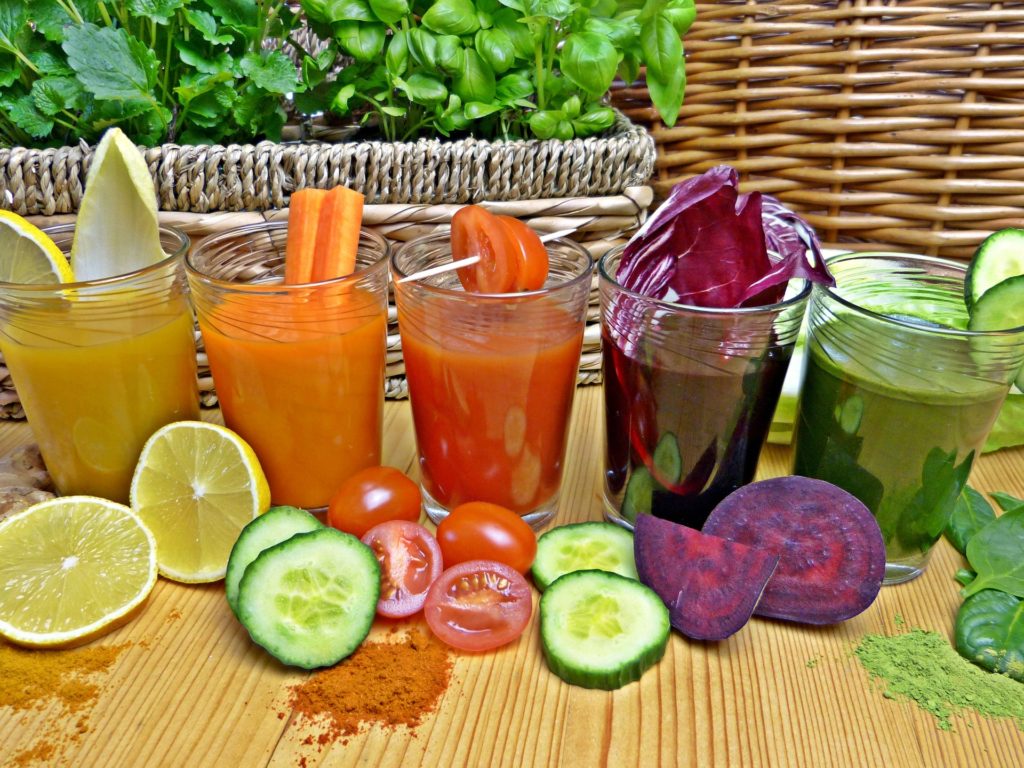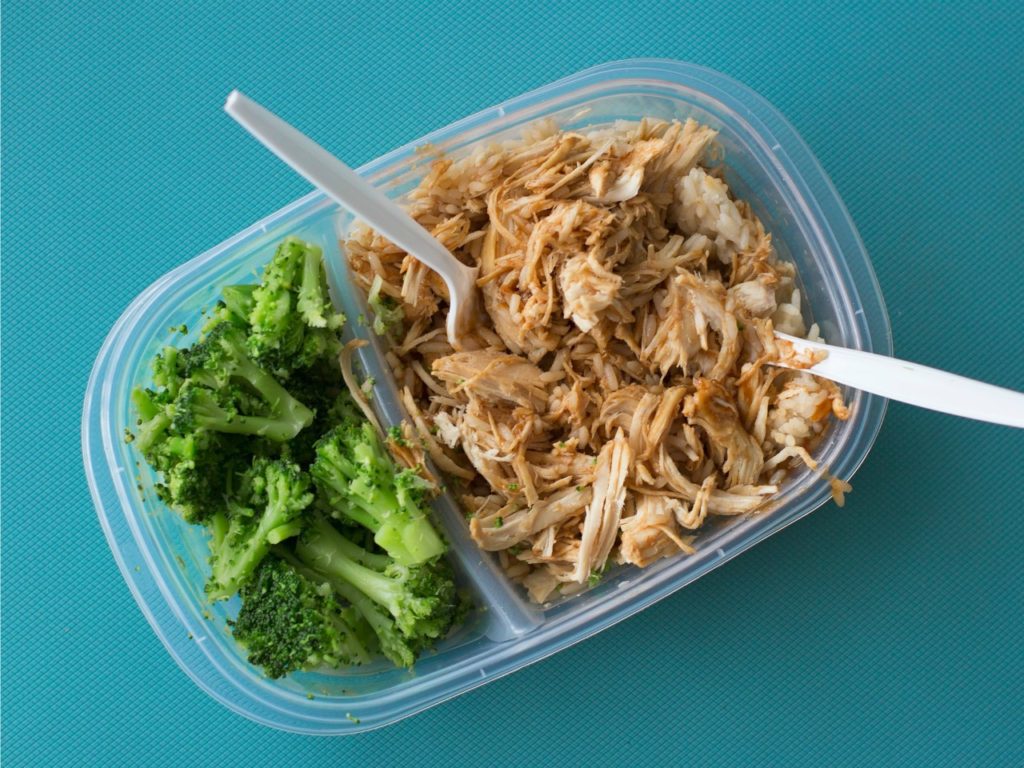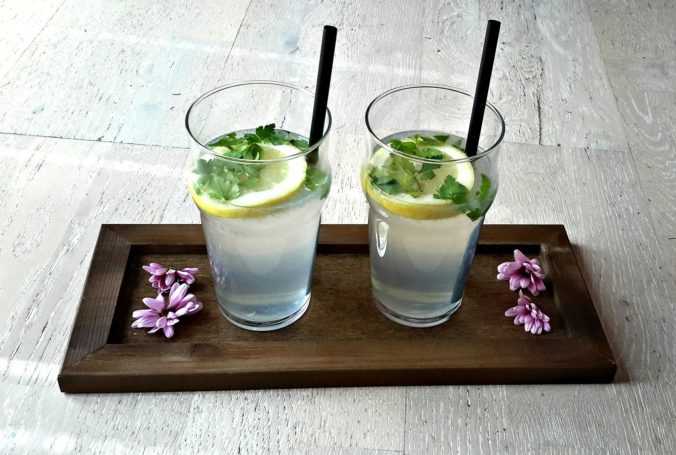In all honesty, I roll my eyes every time I hear the word detox—when applied to eating, that is. While some approaches might hark back to longstanding traditions of Ayurvedic or Chinese medicine, a lot of what is promoted nowadays is simply ridiculous marketing, anchored in pseudo-science.
N’importe quoi, as we say in French.
The fact of the matter is that our own body is pretty well designed to do its job when it comes to getting rid of toxins. (Ever heard of that super special organ, the liver? Well, that’s pretty much its job, and it’s quite capable of doing it thankyouverymuch!)
Of course, there are a couple things that you can do to help your liver along, but they’re probably not quite what you expect to hear from a fitness blog (but then again, if you’ve been around, you shouldn’t be too surprised!)
DON’T: SPEND TONS OF $$$ ON FANCY JUICES AND EXPECT MIRACLES
I have a feeling that, deep down, we all want to believe in miracles. And this is precisely why marketers have such an easy time getting customers for their products, no matter what they are.
One of those popular ploys is, obviously, the vast array of “detox juices” that are on the market. Not only are people spending fortunes on them—either by purchasing pre-bottled products or by acquiring expensive juicing equipment and ingredients that inevitably end up collecting dust after a while—but many are so ardent in their need to believe they’re miraculous that they start proselytizing. And that’s just never pleasant for anyone else involved.
Now, don’t get me wrong: if they’re something that you genuinely enjoy consuming, go right ahead. If, however, you’re attaching yourself to the notion that they are the solution to all of your woes, you might want to reconsider.

DO: INCREASE YOUR WATER INTAKE… A BIT
Obviously, I’m not advocating that you go and start consuming liters and liters above your usual water consumption. However, consider increasing the amount of water you’re drinking daily by a few glasses. This can be as simple as swapping out other drinks for H2O, and see how you feel from there.
As with anything, avoid making this an obsessive behaviour: you’re striving for consistency, but consistency is only sustainable when the effort isn’t overwhelming.
DON’T: CUT ENTIRE FOOD GROUPS FROM YOUR DIET
Barring actual allergies or severe food intolerances, there’s no reason why you should ban certain foods entirely from your plate at all times. While vilifying certain food groups is definitely one of the trends du jour, it doesn’t mean that it’s justified. While greatly reducing your consumption of highly processed foods will undoubtedly be beneficial to your healthful pursuits, systematically labeling some foods as “bad” isn’t helping you in the long run.
Restriction greatly draws on your willpower, which exists only in limited supply. When it’s used up, the pendulum tends to swing the other way and throw us hard into a binge, which is never helpful. Instead, test your tolerance to smaller amounts, and remember that no food holds the power to make you good or bad.

DO: CUT DOWN YOUR ALCOHOL CONSUMPTION
It’s no news that processing alcohol will keep your liver… busy. Want to give it a bit of a break? Reduce your alcohol consumption, plain and simple. While drinking in moderate amounts is absolutely fine, it bears mentioning that it’s never conducive to fat loss. Furthermore, you might want to take the opportunity to explore why you are enjoying alcoholic drinks in the way that you do, just to make sure you’re not operating by sheer automatism, or as a way to stifle emotions that would be healthier if expressed.
DON’T: FORCE YOURSELF TO EAT FOODS THAT YOU DISLIKE SOLELY BASED ON THEIR “DETOXING” PROPERTIES
Life’s just too short to force yourself to eat foods that you wholeheartedly dislike. Does it mean that you shouldn’t push your taste buds’ boundaries from time to time and try new things? Of course not! Expanding one’s horizons is one of life’s pleasure, and this includes the food realm.
That said, if you’ve tried something time and time again and just can’t get excited about it, consider finding an alternative. When we associate food with displeasure, we’re once again tapping into our precious willpower to get us through those meals. And we all know what happens once willpower runs out…

DO: SELECT FOODS THAT YOU LOOK FORWARD TO EATING
Food should be appealing. By taking the time to explore and find a way of eating that makes you feel good, both in your body and in your soul, you’re giving yourself the opportunity to tap into one of life’s greatest pleasures, and most ancient opportunities for connection. That’s powerful stuff!
Remember to be critical of any claim that sounds outlandish, because there’s a good chance that it’s unsubstantiated. In other words: if it sounds too good to be true, there’s a strong likelihood that it’s not.
Healthy eating is, at its core, pretty simple. The key lies in consistency. And how can you be consistent with something that you simply don’t enjoy?


